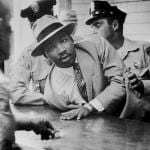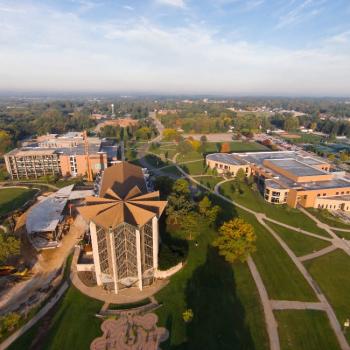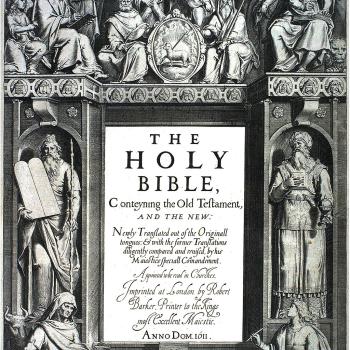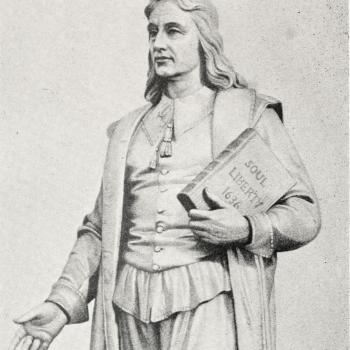Lately I have been re-reading Benedict Anderson’s classic, Imagined Communities: Reflections on the Origins and Spread of Nationalism, first published in 1983. It is the most cited book in the modern social sciences and Anderson’s phrase “imagined community” as a descriptor of the modern nation-state is well-nigh ubiquitous. In reading the book again, I have been struck by the global nature of Anderson’s reach; he freely draws samples from Latin America, the Habsburg Empire, China, and the Middle East in the same paragraph, making thoughtful and lucid connections. He is also a wonderful and witty, if somewhat wordy, stylist. Here he is, for example, on the print legacy of the French Revolution in the nineteenth century: “The overwhelming and bewildering concatenation of events experienced by its makers and its victims became a ‘thing’—and with its own name: The French Revolution. Like a vast and shapeless rock worn to a rounded boulder by countless drops of water, the experience [of the Revolution] was shaped by millions of printed words into a ‘concept’ on the printed page, and, in due course, into a model. Why ‘it’ broke out, what ‘it’ aimed for, why ‘it’ succeeded or failed, became subjects of endless polemics on the part of friends and foes: but of its ‘it-ness,’ as it were, no one ever had much doubt.”
Additionally, permit me to call attention to my colleague Susan R Holman (who holds the John R. Eckrich Chair in Religion and the Healing Arts at Valparaiso University). At Public Orthodoxy, she has a wonderful, very relevant article, “Disease, Community, and Grief in a Covid-19 World.” Here is the beginning:
“Some years ago, I was on a high-speed Acela to New York one morning when, in Connecticut, a woman in her early 60s apparently fainted while waiting at the crossing barriers. Recently discharged from the hospital, she was the primary caregiver for her grandchildren, ages 4 and 2, and was now, with great caution and love, driving them to preschool. Gently, uncontrolled—inexplicable to those watching—the nose of her car bounced under the barriers and rolled onto the track—at the very moment when our train barreled through. The woman and her grandson died instantly; his tiny sister died several days later. After a long wait, a half-mile past the impact, our train still enmeshed with the mangled car, we, the shocked passengers, were eventually disgorged at the closest station to wait for a new train. When reporters began trawling the crowded platform, microphones in hand, I could not speak. Silence seemed the only respectful response to such a violent and deadly serendipity. . .” To finish the essay, please click here.
I will be participating in an on-line public discussion on the Covid-19 crisis with Dr. Holman tonight at 7pm (Central Time). Here is information for the event:
TABLE TALK: MAKING SENSE OF COVID-19
University-Chair Professors share thoughts on the current crisis in historical, moral, and theological perspective
Monday, June 1, 2020, 7:00 p.m.
Join Zoom Meeting: Meeting ID: 832 3915 5954 Password: COVID. Or On tap mobile: +13017158592, 83239155954#, 1#,776951# US (Germantown) +13126266799,,83239155954#, 1#,776951# US (Chicago) OR Dial by your location +1 301 715 8592 US (Germantown) +1 312 626 6799 US (Chicago), +1 929 205 6099 US (New York), +1 253 215 8782 US (Tacoma), +1 346 248 7799 US (Houston), +1 669 900 6833 US (San Jose). Meeting ID: 832 3915 5954 Password: 776951.
Event Description and Participants:
How have global pandemic events over the past few months shaped the way we think about our areas of study? How do we connect our personal experiences and lessons learned with course content and related opportunities at Valpo next year to think, teach, and learn? In this 1-hour virtual forum, four Valparaiso University Chair Professors chat together about how the Covid-19 crisis has affected them; reflect on possible implications and questions that can build on historical, moral, and theological perspectives across campus learning experiences; and invite forum listeners to carry these conversations forward together into the year ahead.
Participants
Nicholas Denysenko, Emil & Elfrieda Jochum Chair, Associate Professor of Theology
Susan R. Holman, John R. Eckrich Chair in Religion & the Healing Arts, Professor of Humanities
Tal Howard, Phyllis & Richard Duesenberg Chair in Christian Ethics, Professor of Humanities
Ronald Rittgers, Erich Markel Chair in German Reformation Studies, Professor of History & Theology













